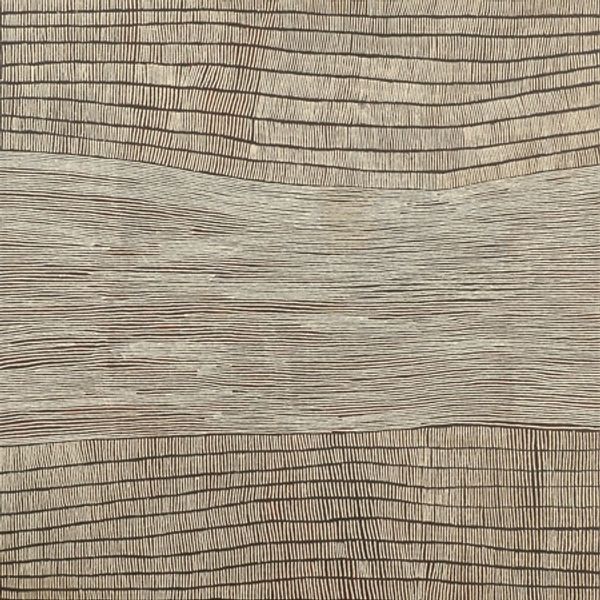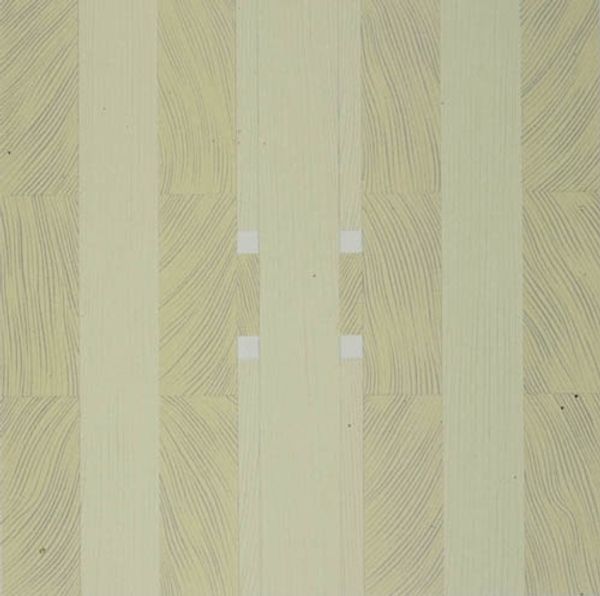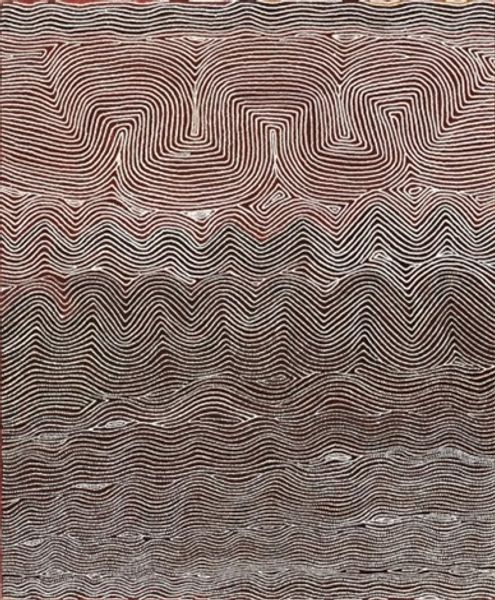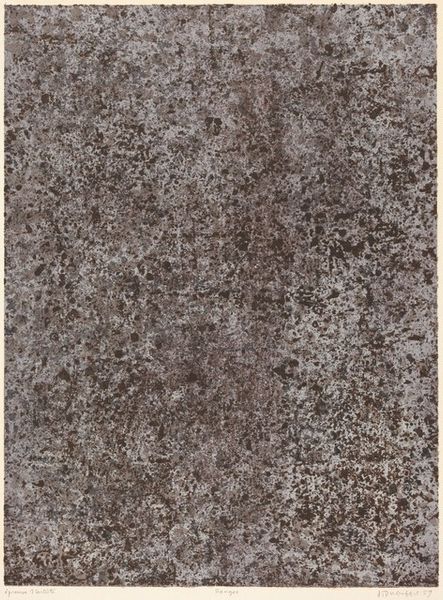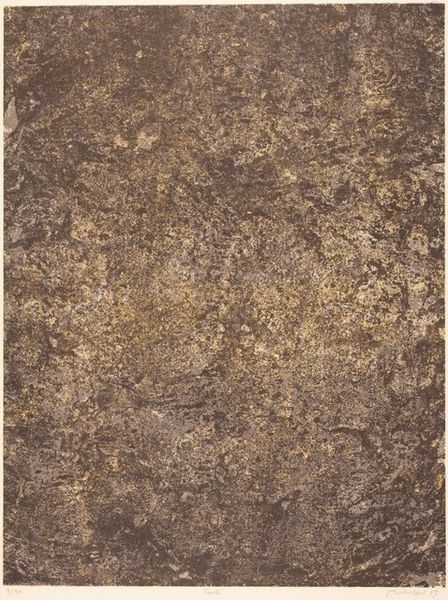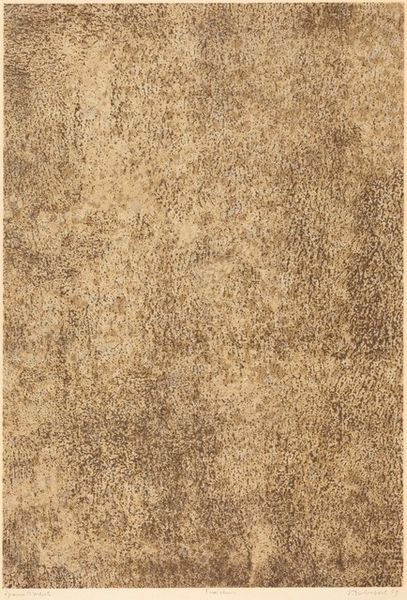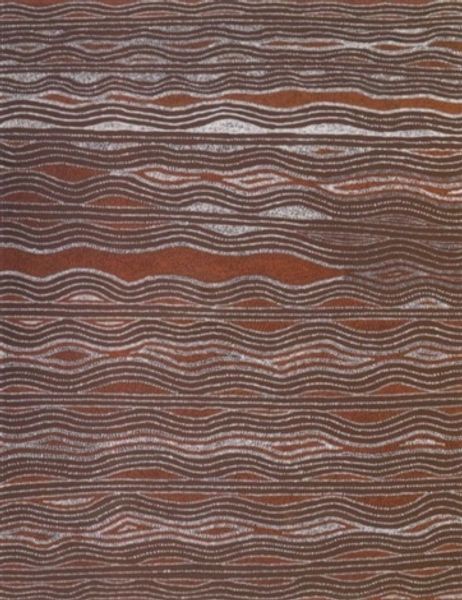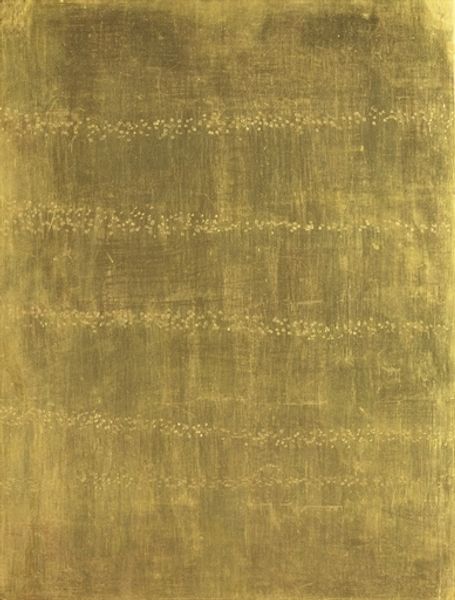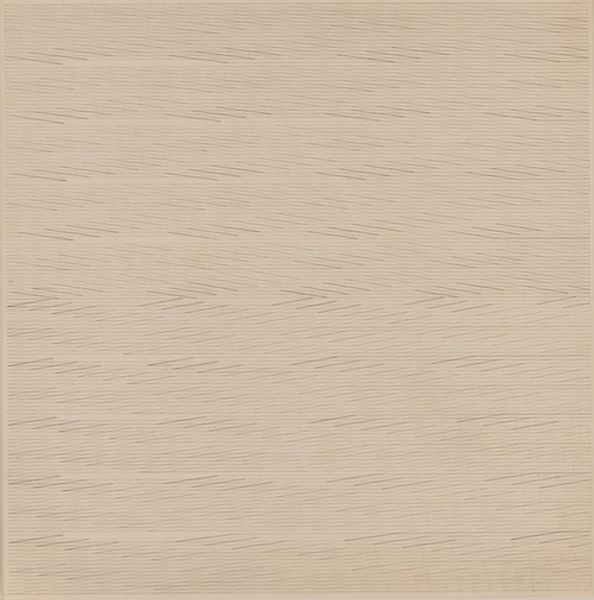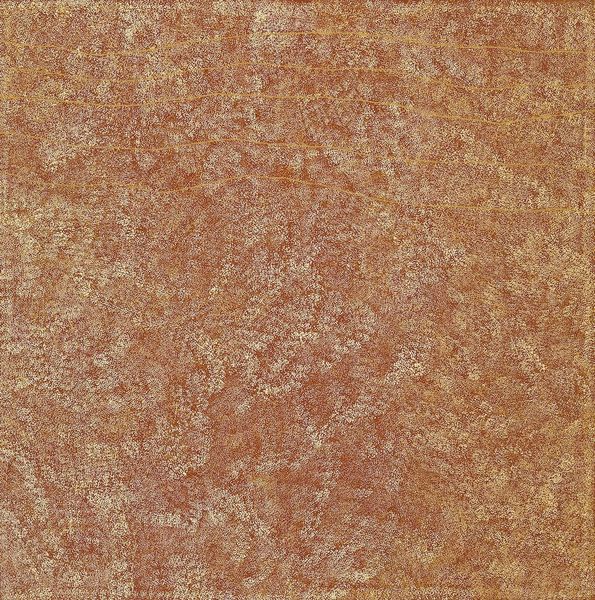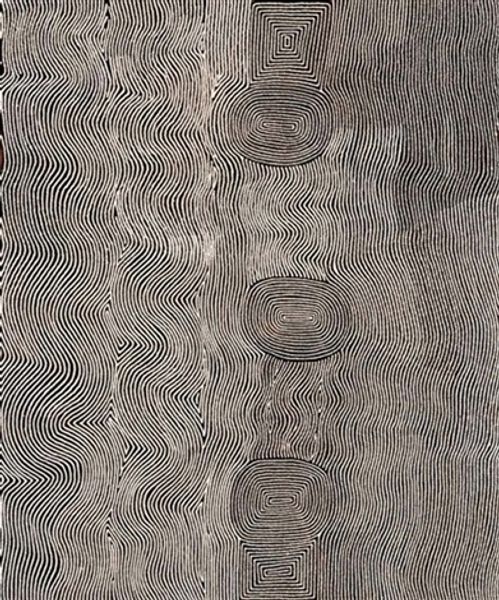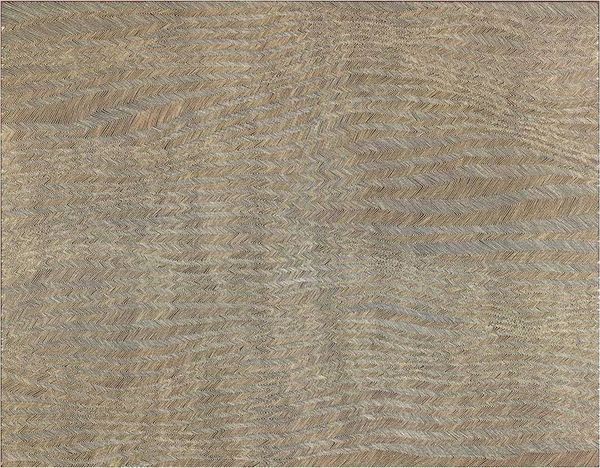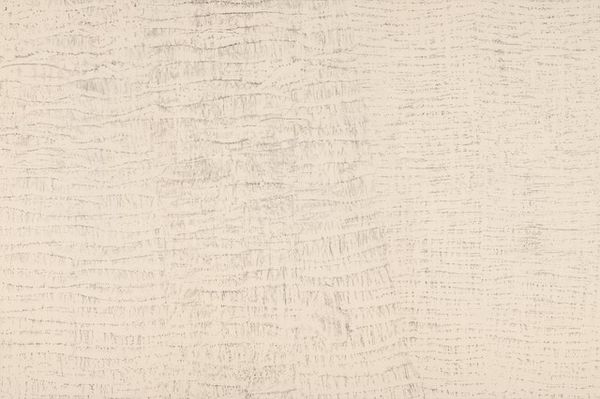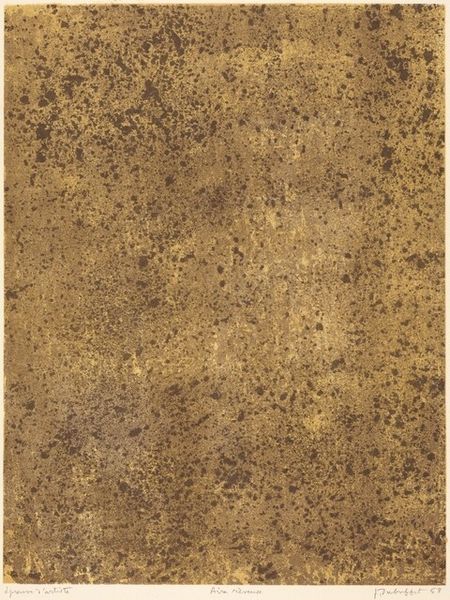
painting, acrylic-paint
#
natural stone pattern
#
naturalistic pattern
#
organic
#
painting
#
acrylic-paint
#
geometric pattern
#
abstract pattern
#
organic pattern
#
geometric
#
vertical pattern
#
abstraction
#
wooden texture
#
natural texture
#
layered pattern
#
organic texture
Copyright: Warlimpirrnga Tjapaltjarri,Fair Use
Editor: This is "Claypan Site of Marmar," created in 2000 by Warlimpirrnga Tjapaltjarri, using acrylic paint. At first glance, the layered, repetitive lines make me think of topographical maps. How do you interpret this work? Curator: The concentric lines and geometric shapes, reminiscent of topographical maps as you observed, point to more than just physical geography. What visual cues strike you as significant? Editor: Well, there’s that recurring rectangular shape, almost like a doorway, nestled within larger squares. It seems central to the composition. Curator: Indeed. The rectangle can symbolize a meeting place, a significant site for ceremony, perhaps even a portal to ancestral narratives. Indigenous Australian art is rich in such coded visual language. What feelings does the warm, earthen palette evoke? Editor: It makes me feel connected to the land and its history. The texture seems almost like cracked earth, reinforcing that connection. Curator: The ochre tones and intricate patterns act as a form of cultural memory, connecting viewers to the ancestral stories and the sacredness of the land depicted. How does knowing this influences your understanding of it? Editor: It shifts my perspective from just seeing lines and shapes to understanding the deeper cultural significance embedded within the artwork. Curator: Exactly! The symbols unlock narratives. Each dot, each line, contributes to the telling and remembering. I love how these shapes transform personal experiences into collective visual knowledge. Editor: It is like a map, a memory, and a message, all at once. I will never look at such images the same way.
Comments
No comments
Be the first to comment and join the conversation on the ultimate creative platform.
